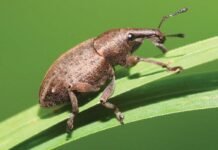Health experts from all over the world are raising a serious concern about something called “Disease X.” They say it could be even worse than COVID-19 and could result in more than 50 million people losing their lives. This makes COVID-19 look like a warning for even more dangerous pandemics in the future.
A Dire Warning from Dame Kate Bingham

Dame Kate Bingham, who led the UK’s efforts to develop vaccines, has given a grim warning about Disease X. She wants us to understand that we’ve been lucky with COVID-19, and the next pandemic could be much deadlier.
WHO Recognizes Disease X
The World Health Organization (WHO) has officially acknowledged Disease X as a looming threat. They believe it might already be starting to spread, which is a big problem for global health.
How Deadly Could Disease X Be?
COVID-19, which began in 2019, has already taken almost seven million lives worldwide. Dame Kate Bingham thinks Disease X could be more than seven times deadlier than COVID-19 and might come from a virus we already know about.
Similarities with the 1918-1919 Flu Pandemic
Dame Kate Bingham is comparing Disease X to the devastating flu pandemic of 1918-1919, which killed over 50 million people. She’s worried that there are many viruses out there that could cause such a disaster because viruses can multiply and change quickly.
Keeping an Eye on
Many Viruses Scientists are closely watching 25 groups of viruses, each with thousands of individual viruses. Some of these could turn into serious pandemics. However, this monitoring doesn’t cover viruses that can jump from animals to humans, which is an additional threat.
Efforts to Prepare and Make Vaccines
UK Scientists Working on Vaccines To prepare for Disease X, scientists in the UK are working hard to develop vaccines for this unknown but potentially deadly virus. Over 200 scientists are involved, and they’re doing this research in a highly secure lab in Wiltshire called Porton Down.
Focusing on Animal Viruses
The research is mostly looking at viruses that can pass from animals to humans and spread quickly across the world. They’re studying viruses like bird flu, monkeypox, and hantavirus (which comes from rodents). These viruses are particularly concerning.





